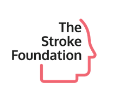After a stroke you may experience difficulty sleeping. The causes can vary — from side effects of medicine you may be taking, to finding it difficult to come to terms with any disability your stroke may have left. Below are some tips that may help you get a better sleep.
Create an adequate space
Your bedroom should be a place of rest. Take out any rehabilitation equipment, anything that makes noise (unless you specifically need that machine or piece of equipment), close blinds and curtains to make your room as far as possible, and be sure to have enough pillows to be as comfortable as possible.
Limit the use of screens
Phones, tablets at TVs can be distractors, and the light that these devices emit can disturb your sleep cycle. Leave your phone in another room and watch TV in another room so that your bedroom is only for sleeping.
Watch your caffeine intake
For some people caffeine can have a long lasting effect, so try stopping caffeine intake until 5pm and see if that has any effect on your sleep.
Get plenty of physical and mental exercise during the day
Tired minds and bodies usually rest better, because your body needs that rest in order to recuperate. If you´re having trouble staying busy during the day, plan out different activities throughout the week, take up a new hobby or increase the time on your daily walk.
Have a routine
Ease your mind and body into sleep by setting up a bedtime routine: wash face, brush teeth, practice mindfulness or meditation for 5 minutes in the dark — whatever fits in with your needs! Reading a few pages of a book will also help take your mind off of things and tire you out.
Getting plenty of quality sleep is essential for stroke recovery. Your brain needs that time to repair itself and it will help you be more alert and achieve more the next day.

 Donate
Donate



